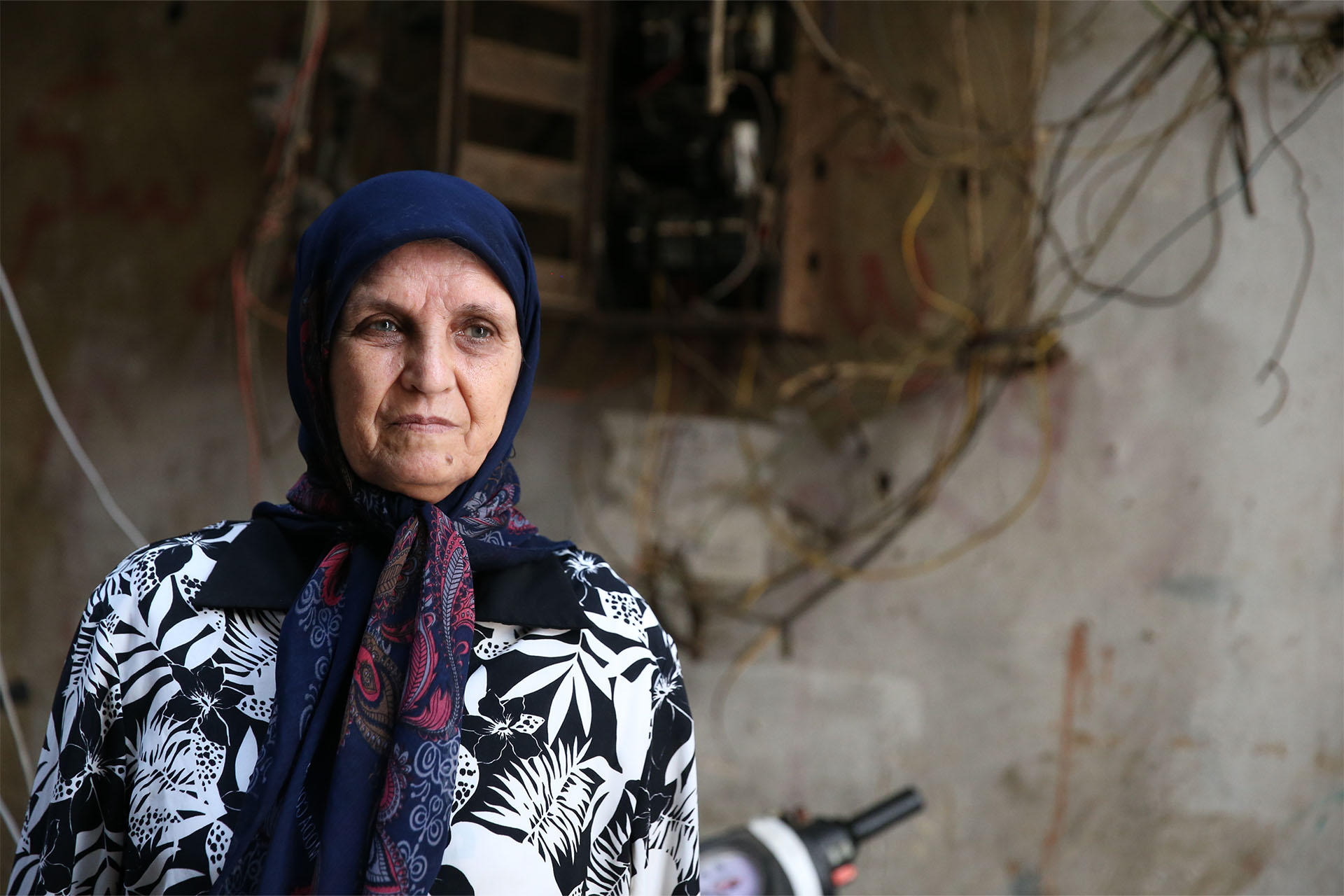Zahwa Ashwah, a widowed Palestinian refugee, lives in the Burj el Burajneh camp in Lebanon with her three adult children. She doesn’t know her exact age, but believes she is in her sixties. Ashwa used to work in a school, but is retired and her children are unable to find work, so the family relies on loans from friends and occasional help from NGOs. She receives an annual cash handout from the United Nations agency for Palestinian refugees (UNRWA), but it is nowhere near enough to survive on – especially since a 2019 financial crisis pushed food and fuel prices dramatically higher
Her comments have been translated from Arabic and edited for length.
***
A bag of flatbreads used to cost 1,000 Lebanese pounds.* Now it costs 17,000, and we can’t always get it — there is a crisis with bread too you know. My son suggested I buy the flour and make my own bread at home. Well, we tried that, but even that was expensive as the flour isn’t very affordable any more, and we have to buy the gas to cook it. Cooking gas used to cost 24,000 LBP, now it is 280,000. When we can’t get bread, we cook rice with yoghurt. Each day we just eat what we have in the house – potatoes, vegetables, sometimes eggs. We cannot buy meat or fish at all. One kilo of meat (2.2 lb) is now around 250,000. We depend on what others give us, or when they invite us to eat with them.
And there is the electricity crisis. The government does not give us power, we get maybe one hour of mains electricity each week. We have always relied on generators, but now the diesel is so expensive. Before the crisis we paid 100,000 LBP for 3.5 amps of power, but now it is 1.5 million LBP, so we share it with another house — 3.5 amps between more than six people. We cannot always run the refrigerator on that, only the lights, certainly not the electric heaters. Right now we don’t even have the lights, because the generator cuts out for six hours every day. We have been ill so much as a result. The food goes bad, and we could not heat the house through the winter. My son managed to get hold of a heater that uses wood for his house, so in the days we would go there to keep warm, but at night when we came home we had only blankets, and it was very cold. We have been ill, and cold, and living in the dark, it has been so depressing. We feel worried and stressed all the time.
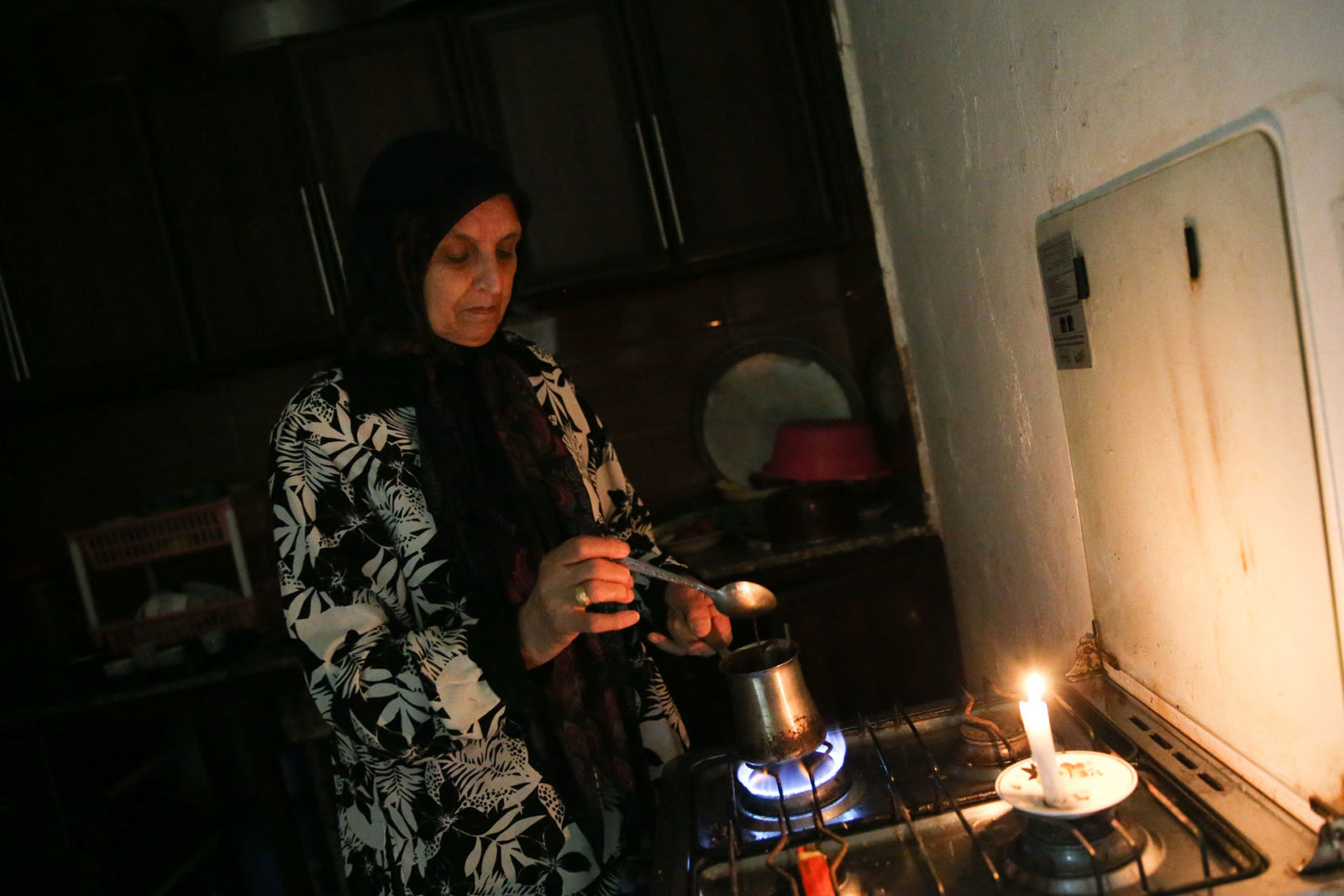
With all our money going on the generator, we have nothing left for food or for medicine. My daughter had a bad stomach virus from eating ruined food, and we couldn’t afford the hospital treatment. UNRWA helped us with 300,000 LBP, but we were expected to pay 1.5 million more. Friends were able to lend us the money, thanks be to God, but we haven’t been able to pay them back. Before the crisis, UNRWA helped us more, but now there are a lot of people who need their help, and they have less money, so they can’t meet all our needs. All of us are ill. I have diabetes and need insulin. UNRWA helps me with that. But my children have psychological problems. My daughter used to burn herself with oil, just look here at the scars on her hands. Once she even stabbed her own stomach. She has medication, which helps, but we have to pay for it. The pharmacist helps us, with low prices, sometimes we don’t pay, and sometimes a friend helps us. We usually manage to get it, but on our own we could never afford it. And at times, the pharmacies have been empty and had no stock. And of course, the stress of the crisis makes the illness worse.
Rates of crime and violence in families are also rising — people are so angry and desperate, I’m worried. We try to stay positive and have hope that things will get better and be fixed, but right now, things only seem to get worse. Thank God for the help we receive, but we need more.
*Lebanon’s currency is officially pegged at 1,500 to the dollar, but has lost most of its value since the financial system collapsed in 2019. The black market rate is now about 28,300 to the dollar.
Editor’s note: The Fuller Project and the Nation produced this dispatch as part of our “Financial Pandemic” project, a collection of firsthand accounts on how the cost-of-living crisis is affecting the daily lives of women around the world.
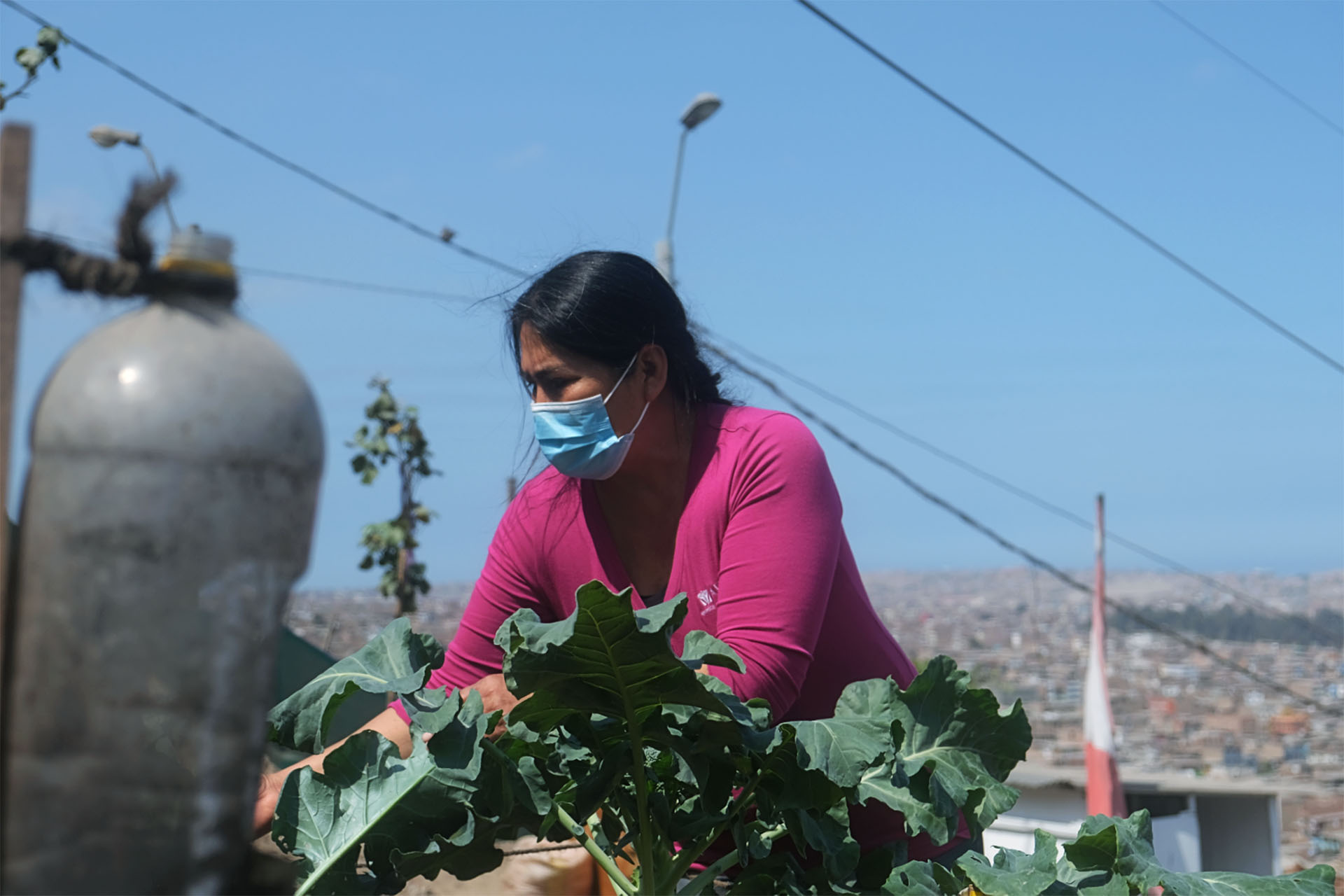
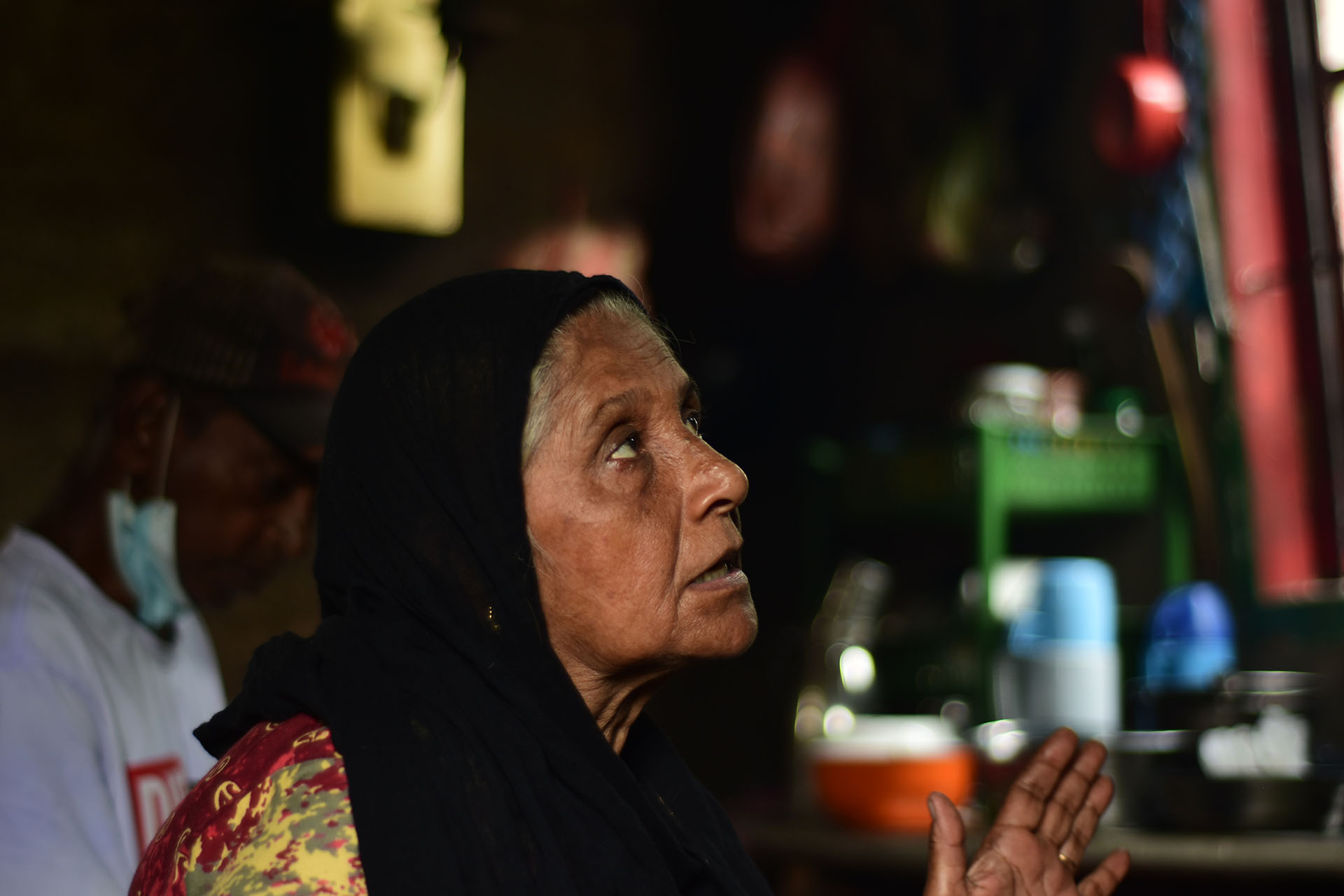
Financial Pandemic: ‘Sri Lanka is not a country for poor people now’
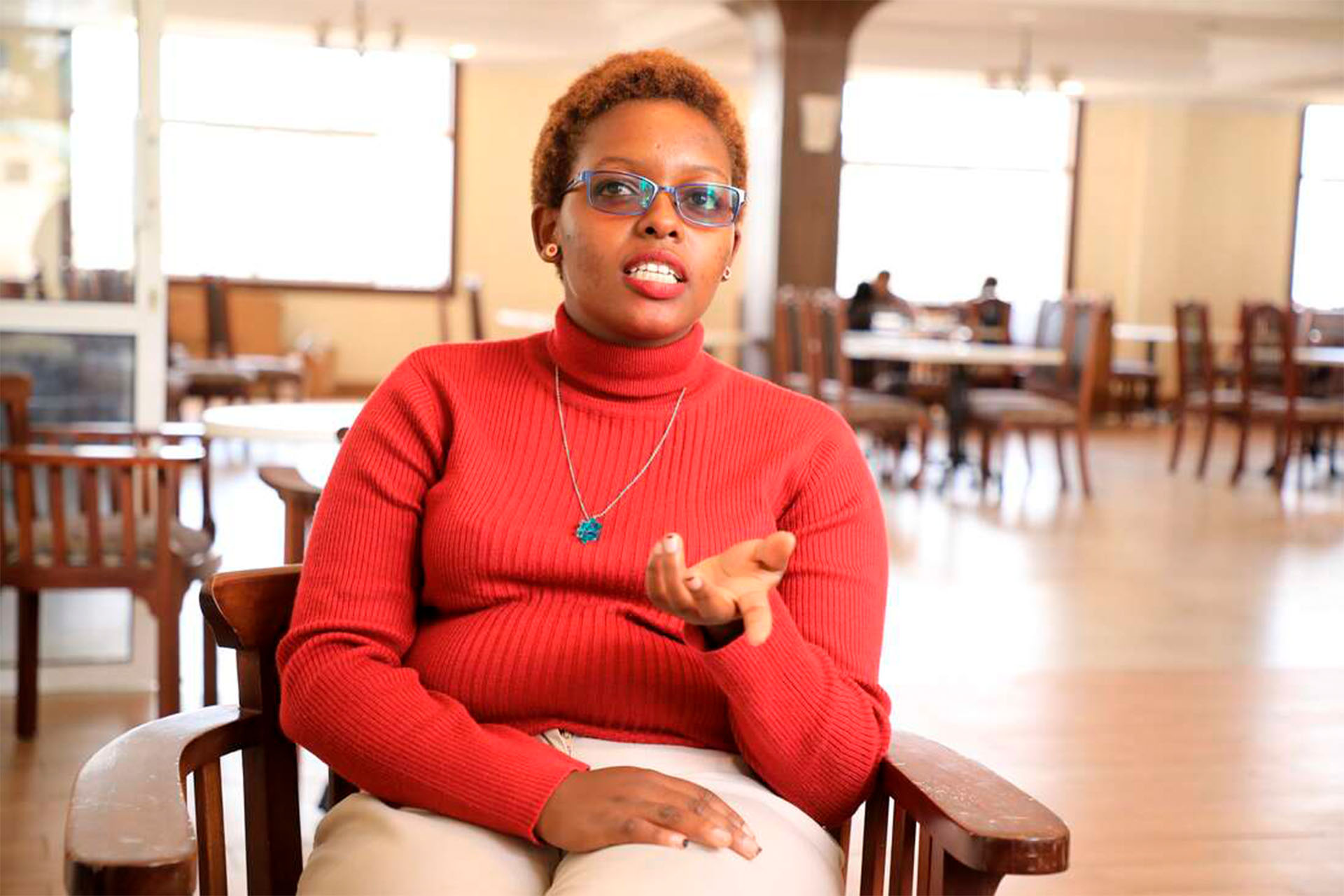


 Katherine Pangonis
Katherine Pangonis